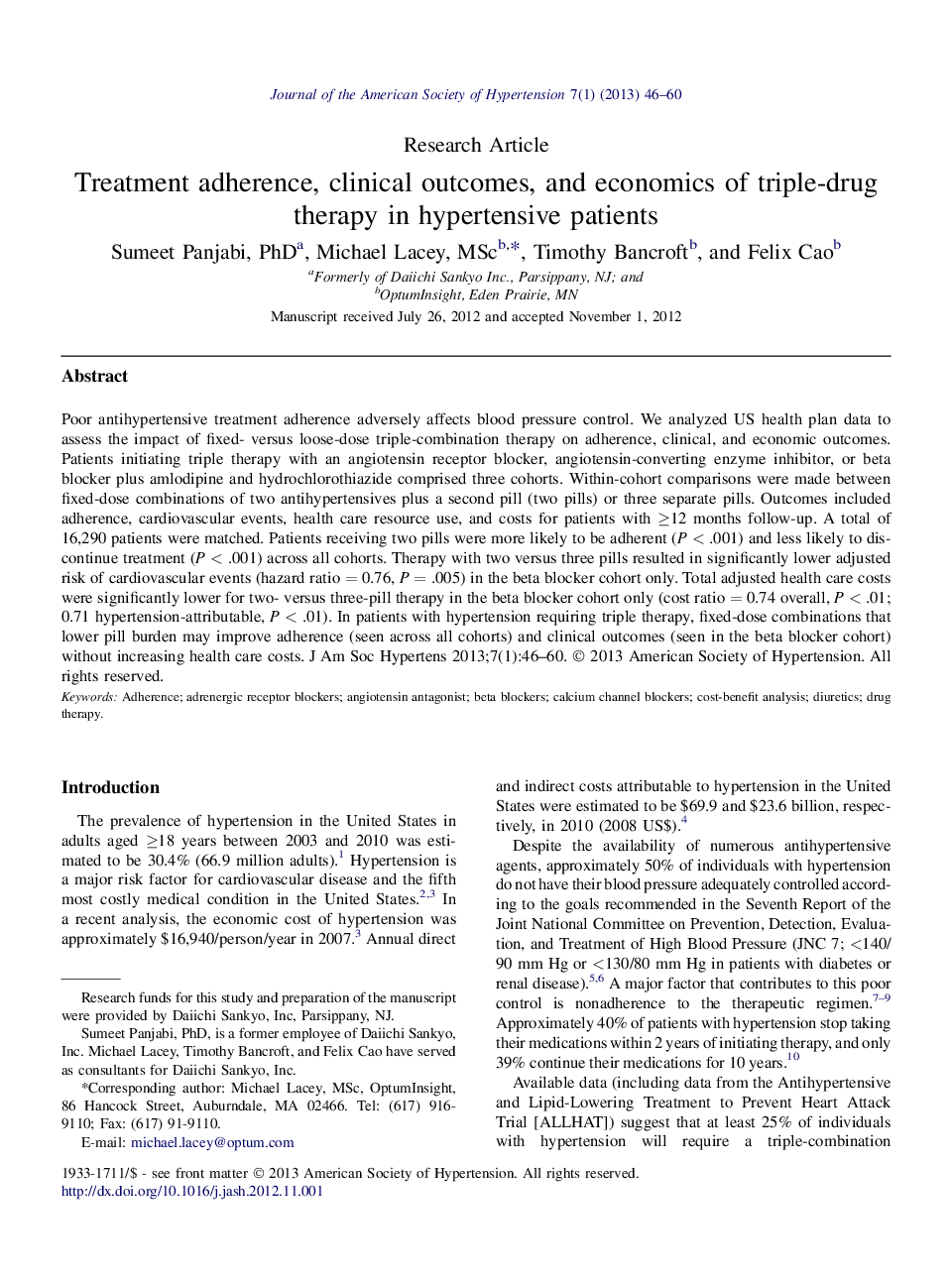| Article ID | Journal | Published Year | Pages | File Type |
|---|---|---|---|---|
| 2956912 | Journal of the American Society of Hypertension | 2013 | 15 Pages |
Poor antihypertensive treatment adherence adversely affects blood pressure control. We analyzed US health plan data to assess the impact of fixed- versus loose-dose triple-combination therapy on adherence, clinical, and economic outcomes. Patients initiating triple therapy with an angiotensin receptor blocker, angiotensin-converting enzyme inhibitor, or beta blocker plus amlodipine and hydrochlorothiazide comprised three cohorts. Within-cohort comparisons were made between fixed-dose combinations of two antihypertensives plus a second pill (two pills) or three separate pills. Outcomes included adherence, cardiovascular events, health care resource use, and costs for patients with ≥12 months follow-up. A total of 16,290 patients were matched. Patients receiving two pills were more likely to be adherent (P < .001) and less likely to discontinue treatment (P < .001) across all cohorts. Therapy with two versus three pills resulted in significantly lower adjusted risk of cardiovascular events (hazard ratio = 0.76, P = .005) in the beta blocker cohort only. Total adjusted health care costs were significantly lower for two- versus three-pill therapy in the beta blocker cohort only (cost ratio = 0.74 overall, P < .01; 0.71 hypertension-attributable, P < .01). In patients with hypertension requiring triple therapy, fixed-dose combinations that lower pill burden may improve adherence (seen across all cohorts) and clinical outcomes (seen in the beta blocker cohort) without increasing health care costs.
